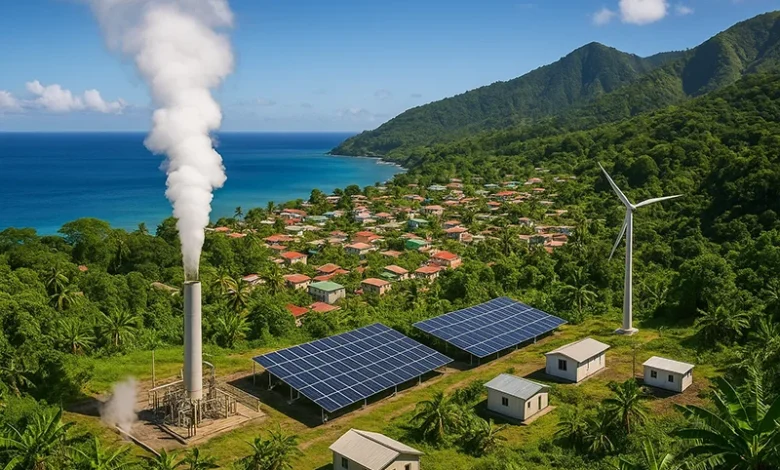Geothermal Resources Development Act

The Geothermal Resources Development Act of Dominica was first enacted in 1974 and served as the foundational legislation governing the island’s early approach to geothermal exploration and energy production. Introduced in a time when geothermal energy was still in its experimental stages globally, the Act demonstrated Dominica’s long-standing recognition of its geothermal potential, derived from its volcanic landscape and abundant sub-surface heat sources.
Legislative Origins and Purpose
Passed by Parliament shortly after Dominica became an associated state of the United Kingdom, the Geothermal Resources Development Act of 1974 aimed to:
- Regulate the discovery and development of geothermal resources
- Define ownership and access rights to subsurface geothermal energy
- Empower government oversight over exploration and production activities
- Establish a licensing regime for geothermal operations
At its core, the Act reflected the government’s intent to treat geothermal energy as a national asset while enabling exploration under strict administrative control. It sought to balance national sovereignty over natural resources with the need to attract technical expertise and investment.
Legal Definitions and Ownership
The Act defined “geothermal resources” as the natural heat of the earth and any fluid heated by such heat, including steam and hot water. Importantly, it asserted that all geothermal resources within the territory of Dominica are the property of the state. This legal definition established state control over exploration and development, regardless of private landownership above the ground.
It further granted the Minister responsible for natural resources the authority to issue licenses and manage all aspects of geothermal operations. The legislation also outlined the rights and obligations of license holders, including the duty to report findings and adhere to environmental and safety standards.
Licensing and Operational Oversight
The Act established three types of licenses:
- Exploration License – authorising geophysical, geochemical, and geological surveys to locate geothermal fields.
- Development License – permitting drilling, resource extraction, and construction of geothermal plants.
- Utilisation License – governing the use of geothermal energy for industrial, commercial, or public purposes.
Applicants were required to demonstrate technical capacity and submit detailed work plans. The Minister could revoke licenses for non-compliance or inactivity.
Although rudimentary compared to modern legislation, the 1974 Act served as a basic legal instrument through which Dominica could initiate geothermal investigations.
Impact and Modernisation
By the early 2000s, increased interest in renewable energy, climate adaptation, and fuel diversification revived the national geothermal agenda. However, the 1974 Act lacked the regulatory robustness needed to manage commercial-scale projects or safeguard environmental concerns and investor obligations. This led to the drafting of the more comprehensive Geothermal Energy Act of 2016, which effectively modernized and replaced much of the earlier legislation.
While the 1974 Act is now largely superseded in practice, it remains historically significant as the original legal pathway through which Dominica asserted control over one of its most promising natural energy resources.
Legacy in National Energy Policy
The Act’s legacy endures in Dominica’s National Energy Policy (2021), which identifies geothermal energy as the centerpiece of the country’s transition to 100% renewable electricity. Today’s major geothermal initiatives, including the Laudat project, trace their legal heritage to this 1974 legislation. It marked the beginning of Dominica’s journey from potential to practice in the field of geothermal development.




